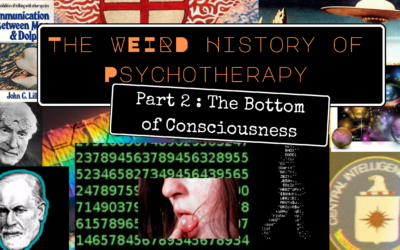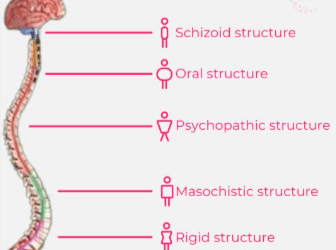 Albert Ellis
Albert Ellis
Did you enjoy this article? Checkout the podcast here: https://gettherapybirmingham.podbean.com/
Albert Ellis (1913-2007) was an influential American psychologist and the founder of Rational Emotive Behavior Therapy (REBT). His impact on the profession of psychology and therapy was significant, as he challenged prevailing therapeutic approaches and introduced innovative techniques. However, his methods were not without controversy. Here is a brief biography highlighting Albert Ellis’ impact and the controversial aspects of his work:
Albert Ellis was born on September 27, 1913, in Pittsburgh, Pennsylvania. He developed a keen interest in psychology from an early age and pursued an education in the field. Ellis obtained a Ph.D. in clinical psychology from Columbia University in 1947, where he initially leaned toward psychoanalysis.
In the 1950s, Ellis began to question the effectiveness and efficiency of traditional psychoanalysis. He developed Rational Emotive Behavior Therapy (REBT), a groundbreaking therapeutic approach that emphasized the connection between thoughts, emotions, and behaviors. REBT challenged the idea that events themselves cause emotional distress, suggesting instead that it is our interpretations and beliefs about events that influence our emotional reactions. Ellis believed that by identifying and challenging irrational and self-defeating beliefs, individuals could experience significant psychological change.
The impact of Albert Ellis on the profession was far-reaching. He brought cognitive and philosophical elements into the field of psychology, paving the way for the cognitive revolution. His development of REBT laid the foundation for later cognitive-behavioral therapies, which became some of the most widely practiced and researched approaches in the field of psychotherapy.
However, Ellis’ techniques and style were also controversial. He was known for his direct and confrontational therapeutic approach, often challenging clients’ irrational beliefs in a confrontational manner. This provocative and unorthodox style stirred debate and criticism within the therapeutic community. Some professionals argued that Ellis’ approach was too confrontational and lacked the necessary empathy and rapport-building elements of traditional therapy.
Despite the controversy, Ellis’s impact cannot be overlooked. His contributions expanded the field’s understanding of the relationship between thoughts, emotions, and behaviors, and opened new avenues for therapeutic interventions. The development of cognitive-behavioral therapies based on Ellis’ work has had a significant impact on the treatment of various mental health conditions.
Albert Ellis’s legacy in the profession of psychology and therapy is characterized by his pioneering work in developing REBT and his role in shaping the cognitive-behavioral therapy movement. While his techniques were controversial and sparked debate, they also contributed to the evolution of therapeutic approaches and continue to influence the field today.
What was Albert Ellis’s Psychology a Reaction To?
Albert Ellis’s approach to psychology and therapy was primarily reacting against the prevailing therapeutic approaches of his time, particularly psychoanalysis and its derivatives. Here are the main aspects Ellis reacted against:
- Psychoanalysis: Ellis criticized the long-term and introspective nature of psychoanalysis, which focused on exploring the unconscious and past experiences to gain insight into present difficulties. He believed that this approach often prolonged therapy unnecessarily and did not necessarily lead to effective change.
- Determinism: Ellis rejected the deterministic views of human nature prevalent in psychoanalysis and behaviorism. He believed that individuals have the capacity for personal agency and can actively choose how they respond to life events. Ellis emphasized that people’s thoughts and beliefs play a central role in their emotions and behaviors, giving them the power to change their experiences.
- Emphasis on Unconscious Processes: While psychoanalysis placed significant emphasis on unconscious processes and childhood experiences, Ellis argued that present thoughts and beliefs were crucial in influencing current emotional and behavioral patterns. He emphasized that understanding and challenging irrational beliefs in the present moment was key to facilitating change.
- Pathology Focus: Ellis criticized the tendency of traditional approaches to pathologize individuals and focus primarily on their problems and deficits. He advocated for a more strengths-based approach, encouraging clients to recognize their inherent worth and potential for personal growth.
- Lengthy Therapeutic Process: Ellis believed in a more time-efficient therapeutic model. He felt that therapy could be effective in a shorter duration if clients actively engaged in identifying and changing their irrational beliefs.
Why Was Albert Ellis Controversial?
There is a controversial incident associated with Albert Ellis that involved him using a provocative statement during a therapy session. While the specific details may vary in different accounts, the incident is often referred to as Ellis asking a client, “Why don’t you just kill yourself?”
The context of this statement is crucial in understanding its intended meaning. Ellis was known for using confrontational and provocative techniques in therapy to challenge clients’ irrational beliefs. The purpose behind such interventions was to shake clients out of their self-defeating patterns of thinking and encourage them to confront their fears and limitations.
In this particular incident, it is believed that Ellis used the statement as a way to challenge the client’s extreme and irrational thinking. The intention was to provoke a reaction and highlight the irrationality of the client’s belief system, rather than promoting self-harm or being callous.
However, it’s also important to acknowledge that this approach is highly controversial and not widely accepted within the therapeutic community. Many therapists and professionals have criticized Ellis for his confrontational style and the use of such provocative statements. It is generally considered inappropriate and potentially harmful to use such explicit language, as it can be distressing and triggering for vulnerable individuals.
Albert Ellis, the founder of Rational Emotive Behavior Therapy (REBT), was a controversial figure within the field of therapy for several reasons:
- Confrontational Style: Ellis was known for his direct and confrontational therapeutic style. He often challenged clients’ irrational beliefs in a confrontational manner, pushing them to confront their negative thinking patterns. This approach was seen as provocative and abrasive by some therapists who believed that empathy and rapport-building were essential components of effective therapy.
- Strong Personality: Ellis had a strong personality and was known for being opinionated and assertive. He was unafraid to challenge prevailing therapeutic approaches and engage in debates with other professionals. His assertiveness and self-confidence sometimes rubbed people the wrong way and led to disagreements and conflicts within the therapeutic community.
- Criticisms of Empathy: Ellis questioned the emphasis on empathy in therapy, believing that it could enable clients to indulge in their irrational beliefs and self-pity. This viewpoint contradicted the traditional therapeutic value placed on empathy and understanding. Some professionals criticized Ellis for downplaying the importance of empathy in the therapeutic relationship.
- Controversial Language: Ellis was known for using provocative and sometimes profane language during therapy sessions. While he argued that it was a way to challenge clients and shake them out of their irrational thinking, this style of communication was seen as unprofessional and offensive by some therapists.
- Lack of Empirical Support: Some critics argued that Ellis’s REBT lacked strong empirical support, particularly in comparison to other therapeutic approaches. While there is evidence supporting the effectiveness of REBT, its research base is considered less extensive compared to cognitive-behavioral therapies such as cognitive therapy and dialectical behavior therapy.
What REBT, Ellis’s model of Psychotherapy
Rational Emotive Behavior Therapy (REBT), developed by Albert Ellis, is a form of cognitive-behavioral therapy that focuses on identifying and challenging irrational beliefs and thoughts that contribute to emotional distress and maladaptive behaviors. REBT is based on the premise that it is not events themselves that cause emotional and behavioral reactions, but rather the way individuals interpret and think about those events.
REBT employs various techniques and a distinct therapeutic style to facilitate change and promote emotional well-being:
ABC Model: The ABC model is a fundamental component of REBT. It stands for Activating event, Beliefs, and Consequences. According to this model, emotional and behavioral Consequences (C) are not directly caused by the Activating event (A), but by the individual’s irrational Beliefs (B) about the event. REBT aims to help individuals identify and challenge their irrational beliefs to produce more rational and adaptive consequences.
Disputing Irrational Beliefs: REBT encourages clients to actively challenge and dispute their irrational beliefs. Therapists help clients recognize the illogical or self-defeating nature of their beliefs and explore alternative, more rational perspectives. This process involves questioning the evidence, logic, and practicality behind irrational thoughts.
Homework Assignments: Ellis often assigns homework to clients as part of the therapeutic process. These assignments are designed to reinforce the work done in therapy sessions and encourage clients to practice new cognitive and behavioral strategies in real-life situations. Homework may involve journaling, completing thought records, or engaging in behavioral experiments.
Role of the Therapist: REBT therapists take an active and directive role, challenging clients’ irrational beliefs and promoting self-reflection. They engage in Socratic questioning, guiding clients to uncover and reframe their irrational thinking patterns. While the therapeutic style can be confrontational, it is intended to stimulate cognitive and emotional change.
The influence of REBT extends beyond the techniques and style of therapy. It has made significant contributions to the field of psychology and therapy:
Cognitive-Behavioral Therapy (CBT): REBT laid the foundation for the development of CBT, which is one of the most widely practiced and researched therapeutic approaches today. The principles and techniques of REBT heavily influenced the broader cognitive-behavioral model, which emphasizes the interconnectedness of thoughts, emotions, and behaviors.
Emphasis on Rational Thinking: REBT helped shift the focus in therapy from exploring past experiences to the present moment and the role of rational thinking in emotional well-being. It highlighted the significance of identifying and challenging irrational beliefs as a means to promote psychological resilience and personal growth.
Evidence-Based Practice: REBT has been subjected to extensive research, contributing to the evidence base for cognitive-behavioral therapies. Studies have shown its effectiveness in treating various mental health conditions, including anxiety, depression, and substance abuse.
REBT’s concepts and techniques have influenced other therapeutic modalities, such as Acceptance and Commitment Therapy (ACT) and Dialectical Behavior Therapy (DBT). These approaches integrate elements of REBT, particularly in terms of challenging irrational thinking and promoting psychological flexibility.
What are REBT techniques?
Rational Emotive Behavior Therapy (REBT) is known for its focus on helping clients achieve rapid change. There are several factors within the therapeutic approach that contribute to its effectiveness in facilitating quick transformations:
Active and Directive Style: REBT therapists take an active and directive role in therapy. They challenge clients’ irrational beliefs, provide feedback, and guide them towards more rational thinking. This proactive approach helps clients gain insight into their thought patterns and encourages them to take responsibility for their beliefs and behaviors. By actively addressing irrational thinking, clients can experience faster shifts in their perspectives.
Identification and Disputation of Irrational Beliefs: REBT emphasizes the identification and disputation of irrational beliefs. Clients learn to recognize and question the illogical, self-defeating, and unhelpful nature of their irrational thoughts. Through the process of challenging these beliefs, clients develop alternative, more rational perspectives. This cognitive restructuring allows for quicker changes in thinking patterns and subsequent emotional and behavioral shifts.
Homework Assignments: REBT often involves the use of homework assignments. These assignments encourage clients to apply new insights and skills learned in therapy to their everyday lives. By actively engaging in real-life situations and practicing rational thinking and behavior, clients can experience accelerated progress. Homework assignments provide an opportunity for ongoing practice and reinforcement of therapeutic techniques, promoting faster change.
Focus on Present Thinking and Behavior: REBT places a significant emphasis on the present moment rather than dwelling excessively on the past. By focusing on current thoughts and behaviors, clients can directly address and modify their immediate experiences. This approach enables clients to make changes in real-time, leading to faster results compared to therapies that primarily focus on historical factors.
Emotional and Behavioral Activation: REBT incorporates behavioral techniques that aim to activate emotions and behaviors associated with clients’ presenting issues. By encouraging clients to directly confront and engage with feared situations or challenging thoughts, REBT facilitates rapid exposure to emotions and behaviors that can be explored and modified in therapy. This active engagement accelerates the change process.
Ellis’s Contributions to the Profession
Albert Ellis made several lasting contributions to the field of psychology and therapy, which have had a profound and enduring impact:
Cognitive-Behavioral Therapy (CBT): Ellis’s work on REBT significantly influenced the development of CBT. CBT integrates cognitive and behavioral techniques to address psychological problems and promote change. The emphasis on identifying and challenging distorted thinking patterns, restructuring beliefs, and engaging in behavioral experiments stems from Ellis’s pioneering work. CBT has become one of the most widely practiced and researched forms of therapy, demonstrating its lasting impact on the field.
Active and Directive Therapeutic Style: Ellis’s therapeutic style was characterized by directness, confrontation, and active engagement. He challenged clients’ irrational beliefs and encouraged them to take an active role in their own therapy. This approach influenced the therapeutic styles of many subsequent therapists, promoting a more dynamic and engaged therapeutic relationship.
Promoting Rational Thinking and Emotional Resilience: Ellis’s emphasis on rational thinking and the power of thoughts in shaping emotions and behaviors has had a lasting impact on the field. By highlighting the significance of identifying and challenging irrational beliefs, Ellis’s work has contributed to the promotion of cognitive resilience and the development of cognitive skills to manage distressing emotions and maintain psychological well-being.
Influence on Evidence-Based Practice: Ellis’s contributions to therapy have been extensively studied and researched, establishing the evidence base for cognitive-behavioral approaches. Research has consistently demonstrated the effectiveness of REBT and CBT in treating a wide range of mental health conditions, including anxiety disorders, depression, substance abuse, and more. Ellis’s work has contributed to the growth and acceptance of evidence-based practice within the field of therapy.
Overall, Albert Ellis’s lasting contribution lies in the development of REBT, the influence on the cognitive-behavioral therapy model, the promotion of rational thinking, and his impact on evidence-based practice. His work has shaped the way we understand and treat psychological difficulties, leaving a significant and enduring mark on the profession.
Bibliography:
Dryden, W. (2005). Rational Emotive Behavior Therapy (REBT): The Evolution of a Revolution. The Psychologist, 18(10), 594-597.
Ellis, A. (1957). Rational Psychotherapy and Individual Psychology. Journal of Individual Psychology, 13, 38-44.
Ellis, A. (1962). Reason and Emotion in Psychotherapy. Lyle Stuart.
Ellis, A. (1973). Humanistic Psychotherapy: The Rational-Emotive Approach. Julian Press.
Ellis, A. (1994). Reason and Emotion in Psychotherapy: Revised and Updated. Birch Lane Press.
Ellis, A. (2001). Overcoming Destructive Beliefs, Feelings, and Behaviors: New Directions for Rational Emotive Behavior Therapy. Prometheus Books.
Ellis, A., & Dryden, W. (2007). The Practice of Rational Emotive Behavior Therapy (2nd ed.). Springer Publishing Company.
Froggatt, W. (2005). A Brief Introduction to Rational Emotive Behaviour Therapy (3rd ed.). Rational Emotive Behaviour Therapy Institute.
Grieger, R., & Boyd, J. (1980). Rational-Emotive Therapy: A Skills-Based Approach. Van Nostrand Reinhold.
Further Reading:
Bernard, M. E. (2013). The Strength of Self-Acceptance: Theory, Practice and Research. Springer.
Bernard, M. E., & Dryden, W. (Eds.). (2019). Advances in REBT: Theory, Practice, Research, Measurement, Prevention and Promotion. Springer.
Ciarrochi, J., & Bailey, A. (2008). A CBT Practitioner’s Guide to ACT: How to Bridge the Gap Between Cognitive Behavioral Therapy and Acceptance and Commitment Therapy. New Harbinger Publications.
Dryden, W. (1990). Rational-Emotive Therapy: Fundamentals and Innovations. Routledge.
Froggatt, W. (2006). Freedom from Anxiety: A Holistic Approach to Emotional Well-Being. HarperCollins Publishers.
Harrington, N. (2006). Frustration Intolerance Beliefs: Their Relationship with Depression, Anxiety, and Anger, in a Clinical Population. Cognitive Therapy and Research, 30(6), 699-709.
Lega, L. I., & Ellis, A. (2001). Rational Emotive Behavior Therapy (REBT) in the New Millennium: A Cross-Cultural Approach. Journal of Rational-Emotive & Cognitive-Behavior Therapy, 19(3-4), 201-222.
Lowinger, P. (1998). Albert Ellis: The Man and His Work. Journal of Rational-Emotive & Cognitive-Behavior Therapy, 16(1), 57-64.


























0 Comments